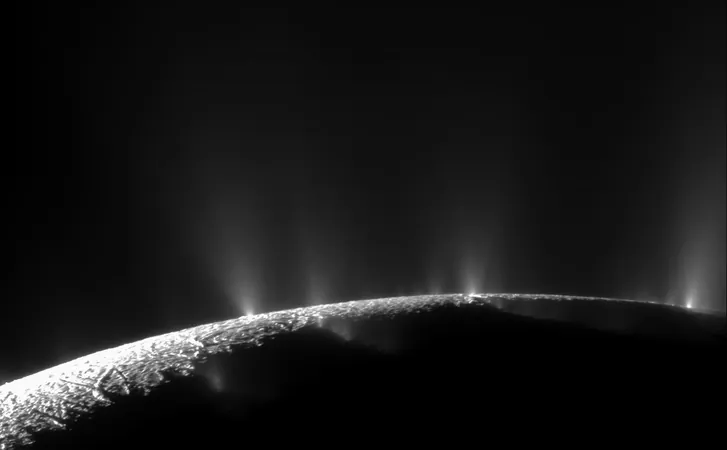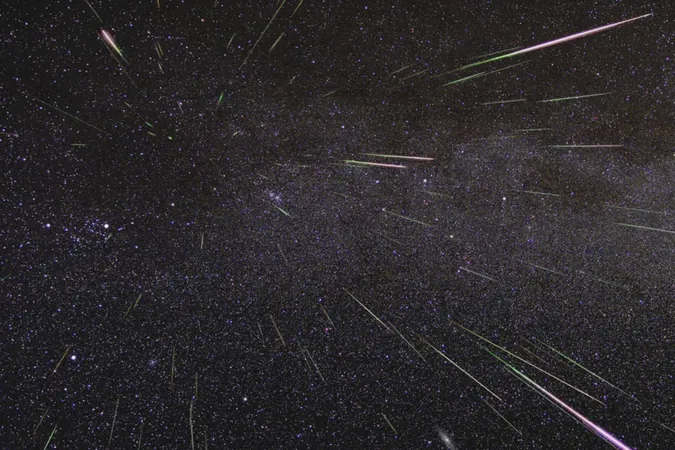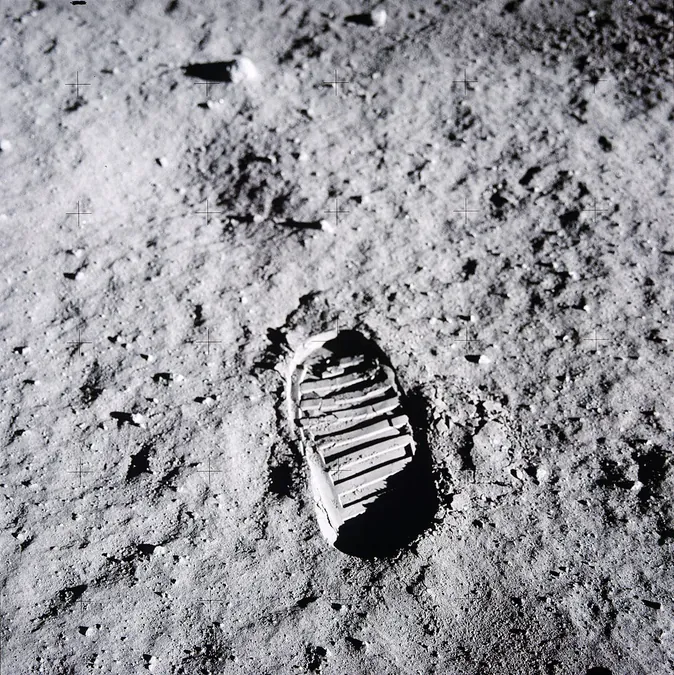
Life's Thin Edge: Enceladus' Ocean Might Just Support Microbial Existence
2025-07-08
Author: Michael
Enceladus: Saturn's Intriguing Ice Moon
NASA's groundbreaking Cassini mission revealed astonishing secrets beneath the frozen surface of Saturn’s moon Enceladus. Flying through icy plumes that burst from fissures in the moon’s crust, scientists discovered that the subsurface ocean holds a pH level that is strikingly alkaline, teetering on the edge of life.
Razor-Sharp Conditions for Life
The mission, which concluded in 2017, wasn't primed for this analysis; however, some instruments serendipitously sampled materials during their harrowing close encounters. As a result, researchers, led by ocean worlds scientist Christopher Glein, were able to determine that the ocean's pH is a strikingly high range of 10.1 to 11.6. This means it's significantly more alkaline than Earth's oceans, which hover around a pH of 8.
New Findings from Old Data
Recent studies examining phosphate mineral distributions in the icy grains of the plumes uncovered this intriguing pH profile. Earlier estimates had underestimated the true alkalinity, only going up to a pH of 9. But with advanced analysis post-2023, scientists have learned that the ocean’s chemistry is a product of intricate water-rock interactions on the ocean floor.
A Geochemical Paradise?
The alkalinity is primarily fueled by reactions between the ocean and iron-, magnesium-, and sodium-rich silicate rocks. This creates a fascinating environment where not only do potential building blocks of life—like calcium phosphates—exist, but they might be supercharged by the ocean conditions.
Could Life Survive?
Living in such high-pH environments poses challenges for microbial life. However, extremophiles on Earth, known as alkaliphiles, have demonstrated surprising resilience to extreme conditions. Glein suggests that if life exists in Enceladus’ ocean, it could likely flourish near the seafloor, where microorganisms could 'mine' metals directly from minerals.
A Treasure Trove of Compounds Awaits
Based on current knowledge, Glein and his team postulate a variety of minerals and molecules—like sodium, ammonia, and carbonate ions—may populate Enceladus’ ocean, providing a rich chemical soup for potential life. The high levels of molecular hydrogen detected could also serve as a robust energy source, akin to the thriving ecosystems around Earth's hydrothermal vents.
The Call for a New Mission
While we’ve gleaned significant insights from the Cassini mission, Glein eagerly anticipates future explorations with advanced instruments specifically built for such analyses. Just imagine what new mysteries about this geochemical paradise could be unlocked in Enceladus!
Final Thoughts: A Journey Into the Unknown
With Enceladus, we stand at the precipice of discovery, peering into an alien ocean that might just hold the secrets of life beyond Earth. As we venture deeper into our solar system, the tantalizing possibility of microbial life in such an unlikely place makes us realize how much we still have to learn.









 Brasil (PT)
Brasil (PT)
 Canada (EN)
Canada (EN)
 Chile (ES)
Chile (ES)
 Česko (CS)
Česko (CS)
 대한민국 (KO)
대한민국 (KO)
 España (ES)
España (ES)
 France (FR)
France (FR)
 Hong Kong (EN)
Hong Kong (EN)
 Italia (IT)
Italia (IT)
 日本 (JA)
日本 (JA)
 Magyarország (HU)
Magyarország (HU)
 Norge (NO)
Norge (NO)
 Polska (PL)
Polska (PL)
 Schweiz (DE)
Schweiz (DE)
 Singapore (EN)
Singapore (EN)
 Sverige (SV)
Sverige (SV)
 Suomi (FI)
Suomi (FI)
 Türkiye (TR)
Türkiye (TR)
 الإمارات العربية المتحدة (AR)
الإمارات العربية المتحدة (AR)